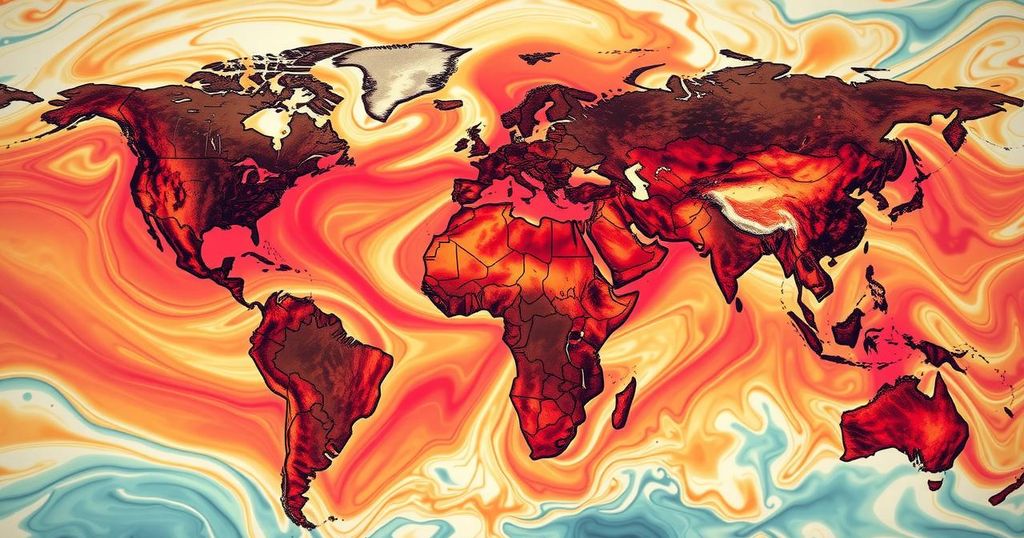In 2024, Climate Change Caused 41 Additional Days of Dangerous Heat Globally

In 2024, climate change led to 41 extra days of dangerous heat globally, according to scientists. This year is likely to be recorded as the hottest ever, with climate-related extreme weather resulting in significant fatalities and disruptions. Research shows clear links between climate change and numerous destructive weather events, compelling nations to take urgent action to mitigate its impacts.
In 2024, global temperatures surged, leading to an alarming increase of 41 additional days of dangerous heat largely attributed to human-induced climate change, as reported by scientists from World Weather Attribution and Climate Central. This year marked a significant milestone, with climate records being shattered, and the planet is poised to experience its warmest year on record. The barrage of extreme weather events, including heat waves, droughts, and destructive storms, severely impacted lives and livelihoods worldwide, demonstrating the dire effects of climate change if fossil fuel consumption continues unabated.
According to researcher Friederike Otto from Imperial College, this phenomenon is expected to worsen unless radical changes occur in fossil fuel usage. Vulnerable populations, particularly in lower-income nations, have been disproportionately affected, underscoring the urgent need for awareness and preparedness against heat-related fatalities. Despite the focus on climate change, the scientific community stresses that extreme weather can be mitigated through effective adaptation strategies and preventive measures by individual nations.
The impacts of climate change are increasingly evident across the globe, as rising greenhouse gas emissions from human activities lead to higher temperatures and frequently occurring extreme weather events. The year 2024 has been particularly striking, with a comprehensive report revealing an upward trajectory in the number of dangerously hot days experienced by populations worldwide. Researchers have identified a clear correlation between climatic shifts and weather patterns, emphasizing the importance of understanding these dynamics in the context of human welfare and environmental sustainability. This underscores the critical challenge of adhering to international climate agreements such as the Paris Agreement, which aims to limit global warming to safe levels.
In conclusion, the findings from 2024 emphasize the pressing threat climate change poses, marked by an unprecedented increase in dangerous heat days attributable to human actions. The urgency of addressing climate change becomes clearer as millions face intensified heat and other extreme weather phenomena. The onus lies on nations to adopt robust mitigation strategies and raise public awareness to combat the impacts of climate change. Without substantial efforts to reduce emissions and adapt to changing conditions, the risk of climate disasters will only escalate.
Original Source: apnews.com







